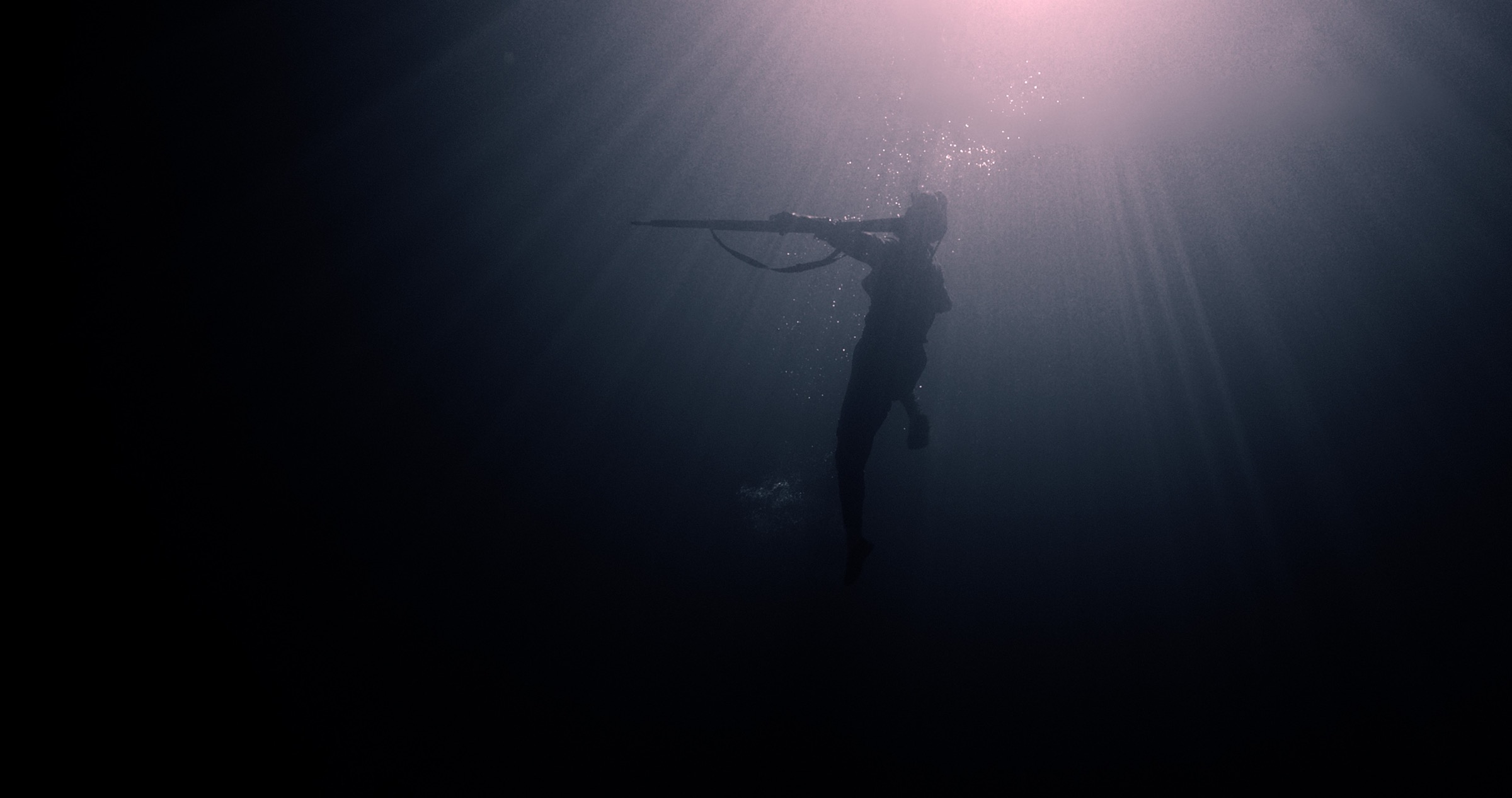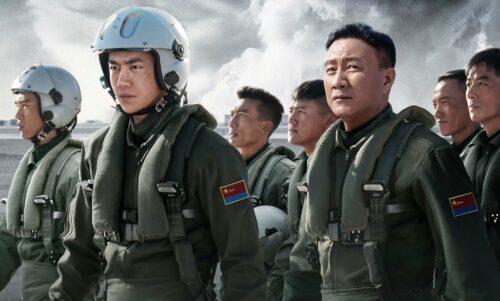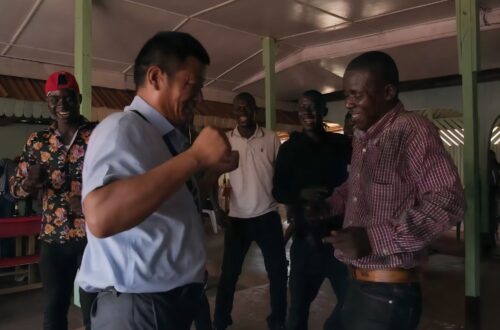‘Beyond the Skies’: An award-winning art house war film set during the Chinese civil war
"Beyond the Skies," whose executive producer is the noted Tibetan auteur Pema Tseden (万玛才旦 Wànmǎ Cáidàn), won three laurels at the Beijing International Film Festival last year, including Best Feature Film and Best Cinematography.

Beyond the Skies, the directorial debut of Chinese Academy of Art professor Liú Zhìhǎi 刘智海, is a black-and-white arthouse war film that is evocative of Chinese ink wash painting. It premiered a year ago at the Shanghai International Film Festival, then nabbed three Tiantan awards in Beijing before moving on to other festivals in Kyoto and Okinawa. But at home, few have heard about and ever fewer have watched this film.
Set in 1935 during the Chinese Civil War, the film follows the young Communist soldier Hong Qichen on a mission to destroy the Kuomintang (KMT) ammunition depot within 48 hours; at stake are the lives of 350 of his fellow soldiers. On the way, Hong enlists the help of other Red Army recruits. Their high-risk trek across the treacherous, dreadful mountains exacts a heavy toll, and the situation is further complicated when it seems that no one else has received the order that Hong did. Against the backdrop of palpable tension filling the heavy air, Beyond the Skies explores the conflict between individuals’ survival instinct and their sense of duty to their nation.
Probably one of the lowest-budget war films in history, Beyond the Skies is decidedly different from other war films. “It’s actually a commissioned work,” says the director Liu, “but the government wanted a biographical war film in the traditional sense. However, I’m relatively averse to such orthodox, ‘main melody’ (主旋律 zhǔ xuánlǜ) war films with grand narratives.” His feeling is understandable, especially when the current domestic film industry has been oversaturated with blockbuster war epics such as The Battle at Lake Changjin and Snipers.
“Because our budget was low, we wanted to tell a small-scale story with a simpler plot, but at the same time, we tried to innovate with the film language,” Liu says. “We hope the audience will see the artistic exploration involved in the film.”
And explore he did. The visual quality of the production can be described as phantasmagoric and dreamlike. Filmed almost completely in black-and-white with low-key lighting, the frames recall Chinese ink wash painting. This quality is only heightened by the expected long shots overlooking the mountains and rock forests, anchoring the characters in the environment. At the same time, Mì Xīnjūn’s 宓鑫君 camera also moves along with the soldiers on their grueling odyssey in handheld long takes, as if a brush traversing rice paper. Although the overall lighting could have been a bit brighter, the scenes underwater and inside caves are beautifully lit. “I wanted to make a Chinese-style freehand brushwork film with poetic qualities (中国化诗意写意电影 zhōnɡɡuó huà shīyì xiěyì diànyǐng),” says Liu.
If the story drags in places, it’s because there’s hardly any story there to begin with. The concise 90-minute running time and painting-like compositions, albeit smoothly pieced together, come at the expense of plot and character — but perhaps by design. Not only does the script endow the characters with no inner life whatsoever, but audiences can hardly even distinguish them. The black-and-white, high-contrast cinematography reduces the muck-daubed soldiers into hazy silhouettes, so much so that when the Beijing jury chose Beyond the Skies for the Best Leading Actor award, they opted to present the honor to the entire male cast.
Nevertheless, the script doesn’t confine the characters to sheer collectivism, nor is it all about patriotic bombast and heroic duty. “The narrative is relatively simple, but there’s a philosophical idea behind it,” Liu suggests. Just as in Chén Kǎigē’s 1986 film The Big Parade, Liu also questions unthinking chauvinism. One of the soldiers is caught in the act of desertion; another explains that he joined the army only to earn dowry money; and at different points, all of them ponder whether their sacrifice is worth it, making the characters more relatable than in usual Chinese war films. “The shedding of human blood in war sheds light on humanity,” reads the film’s poster. When an unarmed and injured KMT soldier begs for his life to be spared, he cries, “I’m one of you.” Such an antiwar ethos and humanistic lament pervades the film.
Brilliantly understated, expressive, yet highly ambiguous, the ending proves reminiscent of the 1984 classic Yellow Earth, a film that revolutionized Chinese cinema and launched the Fifth Generation of Chinese directors to fame.
In trading an elaborate plot for technical brio, Beyond the Skies can feel like it’s made for film aesthetes to wallow in. But there’s an undeniable imprint of poetic sensibility and artistic imagination. Liu is aware of the online discussion surrounding his film, the good and the bad. Rather than being discouraged by his critics, however, he wants more discussion — and more criticism.
“There is no pattern or standard way of making films,” he says. “We as filmmakers should take risks.”
Beyond the Skies is available on Bilibili.







